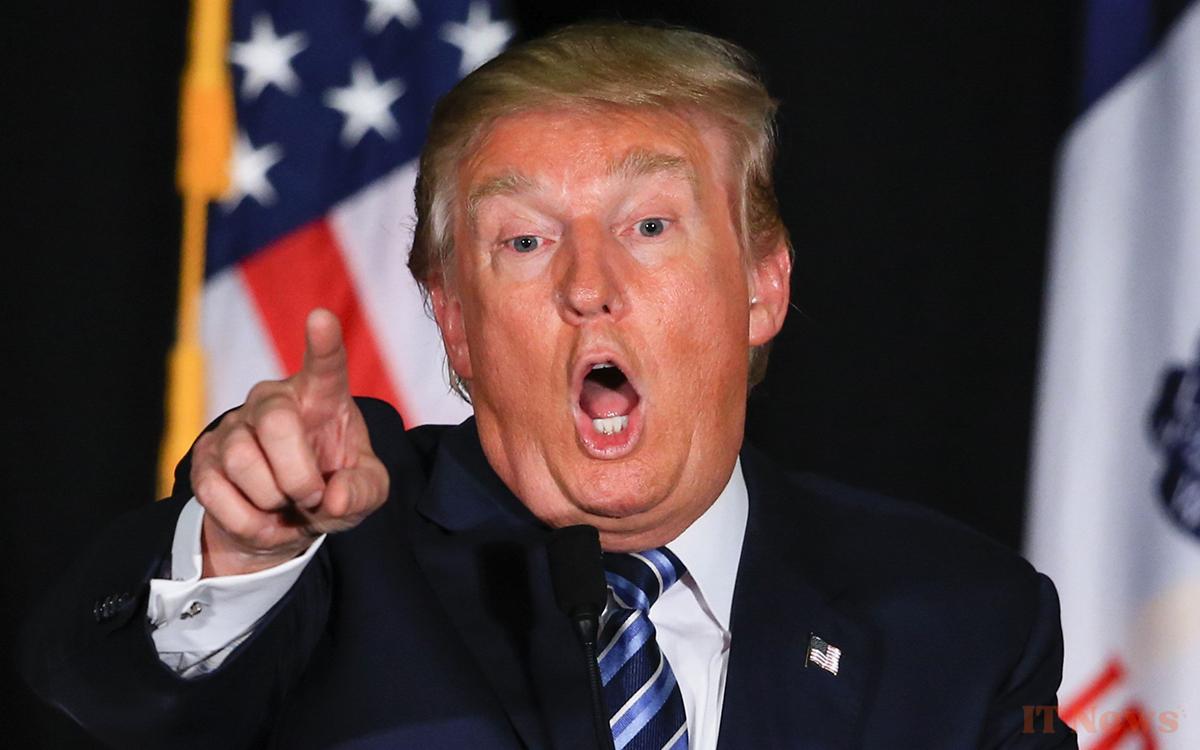The announcement of US tariffs targeting almost every country in the world, and the retaliatory measures in response, will have an impact on inflation, particularly with smartphones, consoles, and computers becoming significantly more expensive. The whole question is to what extent this can make tech inaccessible to consumers and, above all, for how long.
The new round of American customs tariffs and the wave of international reprisals in response are not reassuring for household budgets. From here, for the time being, we can only feverishly accept the prospect of a fairly sharp rise in prices. All this in a region of the world that has until now tended to be tempted by limited protectionist measures – particularly in the automotive sector.
While increasing its influence on international trade in tech products and services through regulation. And overall, maintaining a trade strategy that plays into the hands of globalization. As a wind of deglobalization suddenly rises, consumer prospects have never been so bleak. A dreaded new economic cycle that threatens to take hold.
Facts are stubborn, even in 2025
A look back at the causes of this imminent global reversal. True to ultra-conservative economic rhetoric, Donald Trump has long been yelling about supposed deficits in the trade balance between the United States and its partners. What is at issue is the difference between imports and exports of goods, spare parts, and services between the United States and other markets. The American president claims that this penalizes American industry and workers.
However, several historical precedents describe a different reality. A majority of historians and economists consider, for example, that the Smoot-Hawley Tariff Act worsened the Great Depression in the 1930s. This law established high customs duties while ignoring the effects of trade retaliation from the United States' trading partners (Canada, Europe, etc.). This did not fail to materialize. Donald Trump wants to believe that things would have turned out differently if this law had been maintained against all odds.
Even if we also remember that it largely contributed to ejecting President Hoover from the White House during the following elections. Against all odds, based on a formula that seemed falsely scholarly, Donald Trump still went all the way. With the announcement of a list of particularly high rates targeting practically every country in the world. The calculation boils down to transforming the trade deficit into a percentage of taxes, which it then divides by two.
The result is a series of ultra-arbitrary customs barriers, which is likely to produce the opposite of the intended effect. With a few oddities in between, such as a 10% floor rate applied to countries under international sanctions, particularly Russia. Asia is particularly targeted: for example, products from China are hit with an additional 34% in duties, bringing the total to 54%. Other key countries in the supply chain of major technology companies are suffering the same fate: Vietnam is hit with a 46% tariff, Taiwan with a 32% tariff, and India with a 26% tariff.
The European Union, for its part, must contend with a 20% tariff barrier. Overall, the United States is lifting tariff barriers not seen since 1900. The new rates, which apply from this Wednesday, April 9, 2025, spare no sector – particularly smartphones, consoles, computers, and other imported components.
The targeted countries are fighting back
As expected, the international reaction was swift. Beijing has promised a vigorous response, with the lifting of new customs duties on American products (coal, natural gas, agricultural products, etc.) and restrictions on the export of rare earths, essential for the manufacture of many electronic components.
On the European side, a coordinated response is expected by the end of April. The Old Continent's response is expected to target all American products and services, including payment services like Visa and Mastercard. The French government is also once again supporting heavier taxes on GAFAM. There is also talk of stimulating the emergence of competing local businesses. A gamble that may prove successful in the relatively long term, but which does not provide an immediate solution to the risk of soaring prices. This should even contribute to worsening the effect of deglobalization on prices in the retail sector. However, it should be noted that faced with such an arbitrary and sudden decision by a country like the United States, it is difficult to do anything other than respond with similar measures. There is therefore little chance of avoiding a pessimistic scenario for prices, particularly in the medium term.
The tech sector is deploying emergency measures
All this is far from being good for the GAFAM, which depend on a globalized order. This does not mean that strategies have not already been implemented urgently to limit the immediate effects. For example, we know that Apple chartered no fewer than five planes to avoid the slash before it was implemented. Which gives us hope that the price of the next iPhone 17 will remain more or less within normal limits.
Beyond the emergency measures that may have been put in place before April 9, we are entering the unknown. With additional costs that will likely be passed on to customers, in France and around the world. It is likely that most tech players will opt for a strategy of “global dilution” of costs related to the new US policy. With this in mind, players will do their best to avoid significant variations depending on the market.
But players will not be able to avoid the taxes in force in Asia, to which will be added in some cases a 20% customs duty upon entry into the single market. This trade war is therefore expected to revive inflation in Europe, particularly on smartphones, tablets, and PCs. Even though the level of inflation had recently fallen to around 2%.
How much will prices increase?
Several predictions are emerging for the price of certain tech products in the retail sector. Future iPhones, largely produced in China, for example, will be hit hard by the rate applied in the country. Rosenblatt Securities estimates that this could translate into a premium of around 43% in this market. This could push the price of a basic iPhone selling for $799 to $1,140 in the near future for Americans. In France, the same type of segmentation could establish a price between €1,100 and €1,200 for an entry-level iPhone.
This will give an advantage to other smartphones in the Android ecosystem, such as the Samsung Galaxy and Xiaomi smartphones, which will be able to continue to charge aggressive prices in Europe thanks to their supply chain, which is less exposed to US announcements. Samsung will also have to absorb a significant impact on its sales in the US market. But beyond these difficulties, we are talking about manufacturers who maintain a comparative advantage in potential prices of between 30% and 50%.
On the console side, there is reason to fear further increases in the coming years to balance the cost of the trade war for the sector. Microsoft, in particular, will undoubtedly have to offer more expensive Xboxes, taking into account an average additional cost of 25% in its supply chain. Game developers will also bear the brunt of this situation.
For the European market, this will particularly be the case for names like Electronic Arts, Activision Blizzard, Take-Two Interactive, Microsoft, and Valve. This will likely increase the price of boxes, which are already quite high for the most popular titles. For reference, physical games for the Nintendo Switch 2 cost €80 each.
The computer market could undergo a profound reorientation
The IT sector as a whole could experience one of the most profound reshufflings of the deck. For example, a player like Lenovo (China) has every chance of taking advantage of the situation against HP or Dell (United States) – if Europe actually implements a 20% tariff against the United States, as it is threatening to do.
European consumers could, out of financial pragmatism, favor alternatives that do not come from America. With new opportunities therefore emerging for China.
Three trends are emerging in the longer term
In the longer term, the global economy should gradually adapt to the situation. But we should not count on rapid changes – while the largest firms are already tested by the brutality of the new trade barriers. Many players are indeed dealing with wiped out investments, made with the certainty that the global economy would remain largely globalized.
The players who depend most on the European market for their sales should, however, resolve to localize the production of certain products in the European Union. This will undoubtedly focus on Eastern European countries where labor costs are lower. However, this should not be counted on in the immediate future – especially since building production units takes time and is extremely expensive. This is more of a medium- to long-term trend.
On the consumer side, we should see an increase in the retention period for everyday tech products. While the trend is to renew their smartphones every 3 years on average, we imagine that Europeans will keep their devices longer – up to 4 or 5 years. Those who want to renew their equipment more frequently will opt more for alternatives, such as refurbished products. We imagine that some iPhone users will also consider switching to an Android smartphone more if they upgrade.
A new world, changing choices
While waiting for European alternatives to develop, Europeans should, on the whole, logically import more products from China. Their prices should indeed remain similar to those we see today. But there will inevitably be some products that are impossible to replace. Added to this are a number of unknown factors that make the tech bill for French households even more difficult to predict.
But overall, these disruptions in the tech segment will make the bill higher for the French. Even if, as we can see, the reality will likely be more nuanced. Avoiding too significant an impact on the budget by opting for alternatives less affected by the ongoing trade war seems possible. There are still cases where replacement will be difficult, if not impossible.
The question of household budgets remains. These disruptions do not bode well for the economy, and we are therefore still anxiously awaiting their broader consequences for purchasing power. A global recession is looming as we write these lines. From this perspective, Europe appears to be a shield that can protect, to a certain extent, against the effects of these disruptions. Fully adapting to this new order, however, is impossible and will take time.









0 Comments